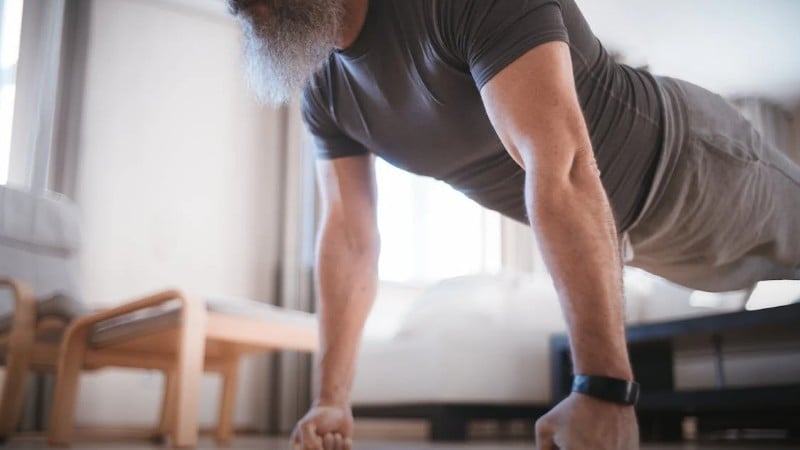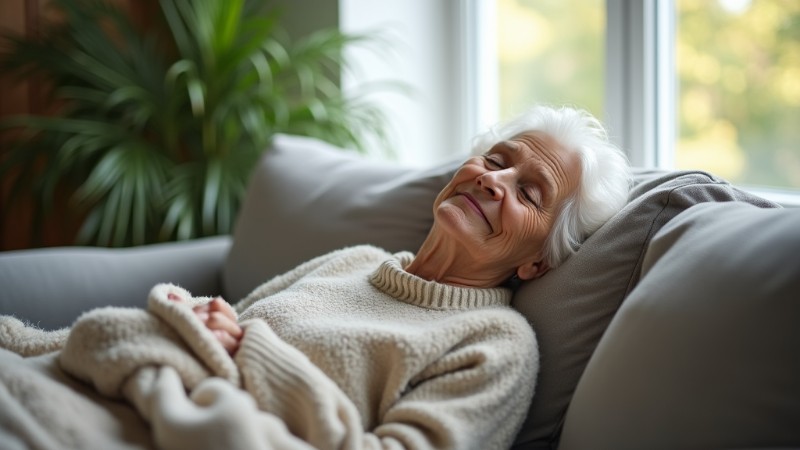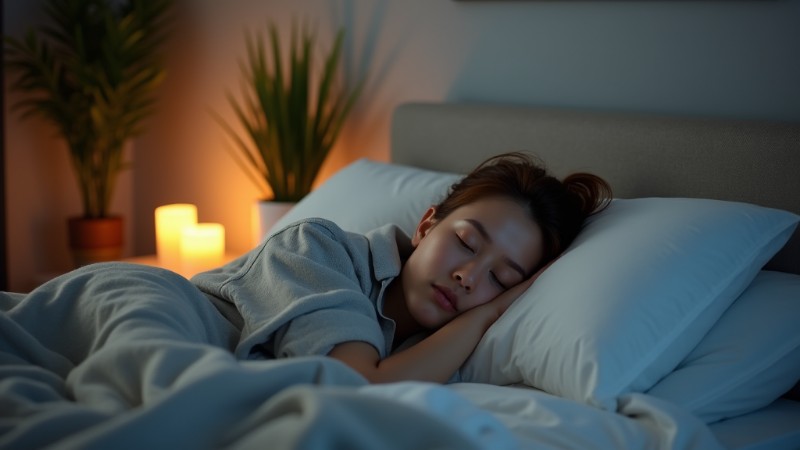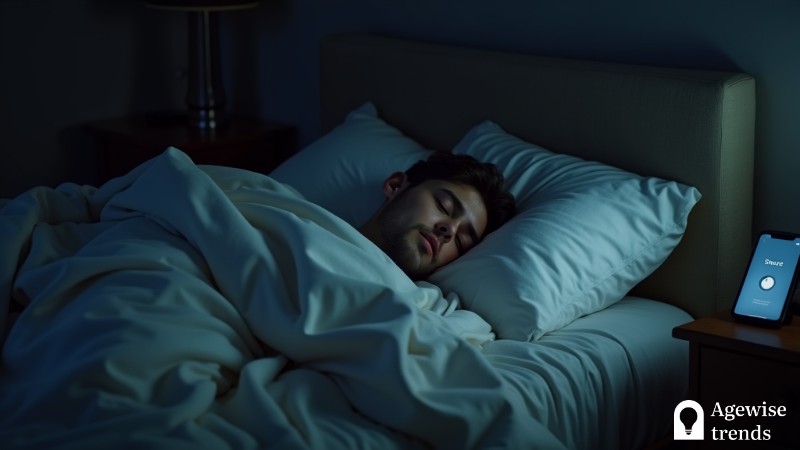A new study has highlighted the benefits of strength training for improving sleep quality, particularly in older adults who struggle with insomnia. The analysis, which reviewed data from over 2,000 participants, found that resistance training significantly outperformed aerobic exercises like running and swimming in promoting better sleep. Given that insomnia affects nearly 50% of people over 60, these findings could reshape recommendations for improving sleep through physical activity.
Key Takeaways
A study shows that weight training is more effective than cardio at improving sleep quality for seniors with insomnia.
- Weight training significantly outperforms cardio in boosting sleep quality.
- Weightlifting helps balance sleep hormones, lower stress, and enhance muscle recovery.
- Pairing weight training with sleep education and healthy sleep habits can further improve sleep quality.
The science behind exercise and sleep
Sleep quality naturally declines with age due to weakened circadian rhythms and reduced melatonin production. This decline increases the risk of various health issues, including cognitive impairment, heart disease, and a weakened immune system. Poor sleep can also contribute to anxiety, depression, and an overall decline in well-being.
Experts have long recognized the connection between physical activity and sleep. The UK’s National Health Service (NHS) and the Centers for Disease Control and Prevention (CDC) both advocate regular exercise as a non-medicated way to manage insomnia. However, until recently, there was little clarity on which types of exercise were most effective.
A recent study, published in Family Medicine and Community Health, aimed to fill this gap. Researchers examined 24 studies involving adults diagnosed with insomnia, primarily those over 60. Each participant reported their sleep quality using standardized tools such as the Pittsburgh Sleep Quality Index (PSQI). The results provided clear evidence that strength and resistance training had a more substantial impact on sleep improvement compared to aerobic activities.
How strength training improves sleep
Among the different forms of exercise studied—including aerobic workouts (cycling, dancing), flexibility training (yoga, gymnastics), and mixed routines—strength training emerged as the most effective for sleep enhancement. Participants who engaged in resistance exercises, such as weightlifting and push-ups, showed a 35% greater improvement in sleep quality than those who performed aerobic activities. Strength training offers several physiological benefits that may contribute to better sleep.
Regulation of sleep hormones: Resistance training helps balance melatonin and cortisol levels, both of which play key roles in regulating sleep cycles.
Reduction in stress and anxiety: Engaging in strength training has been shown to lower stress hormone levels, making it easier for individuals to relax and fall asleep.
Improved muscle recovery and fatigue: The physical exertion from resistance exercises promotes deeper, more restorative sleep by increasing the body’s need for recovery.
Enhanced circulation and oxygen flow: Regular strength training supports better oxygen flow and circulation, leading to reduced nighttime restlessness.
Experts believe that another advantage of strength training lies in its ability to counteract sarcopenia, the age-related loss of muscle mass. As muscle mass declines, physical activity levels often decrease, leading to poorer sleep. Resistance training not only strengthens muscles but also helps maintain overall mobility and health, further contributing to better sleep patterns.
Role of sleep education and lifestyle changes
While exercise plays a significant role in improving sleep quality, researchers also found that sleep education was another effective intervention. In some cases, sleep education improved sleep scores slightly more than aerobic exercise. However, the definition of sleep education varied across the studies. Some programs included simple dietary guidance on sleep-friendly foods, while others involved structured cognitive behavioral therapy for insomnia (CBT-I), a clinically recognized treatment for chronic sleep issues.
Practical tips for better sleep
For those looking to improve their sleep quality, experts recommend combining strength training with other healthy sleep practices.
Consistency in exercise: Engaging in strength training at least 2-3 times per week for 50 minutes per session has been shown to yield significant benefits.
Mindful eating: Avoiding caffeine and heavy meals close to bedtime can enhance the body’s ability to wind down naturally.
Establishing a sleep routine: Going to bed and waking up at the same time each day can reinforce natural circadian rhythms.
Limiting screen time: Reducing exposure to blue light from phones, tablets, and TVs at night helps maintain melatonin production.
Creating a relaxing environment: Keeping the bedroom cool, dark, and quiet can significantly improve sleep quality.
Experts emphasize that while strength training and sleep education are powerful tools, they should be part of a comprehensive approach to managing insomnia. Other lifestyle adjustments, such as stress management techniques and proper sleep hygiene, can further enhance the benefits of exercise.
Future research and considerations
Although current findings strongly support strength training as an effective sleep aid, researchers acknowledge the need for further studies to determine the long-term effects and the optimal workout routines for older adults.
Dr. Scott Kaiser, a geriatric specialist, emphasizes the growing concern of sleep disorders as the global population ages. He highlights that, for the first time in history, there are more people over 65 than under 18, making it crucial to invest in solutions for sleep-related issues. Poor sleep negatively affects overall health, chronic disease management, and healthy aging.
As the understanding of sleep and exercise deepens, health professionals may begin recommending resistance training as a first-line approach for individuals struggling with insomnia—particularly older adults. For now, those seeking a natural way to improve sleep may want to consider adding strength training to their routine.















